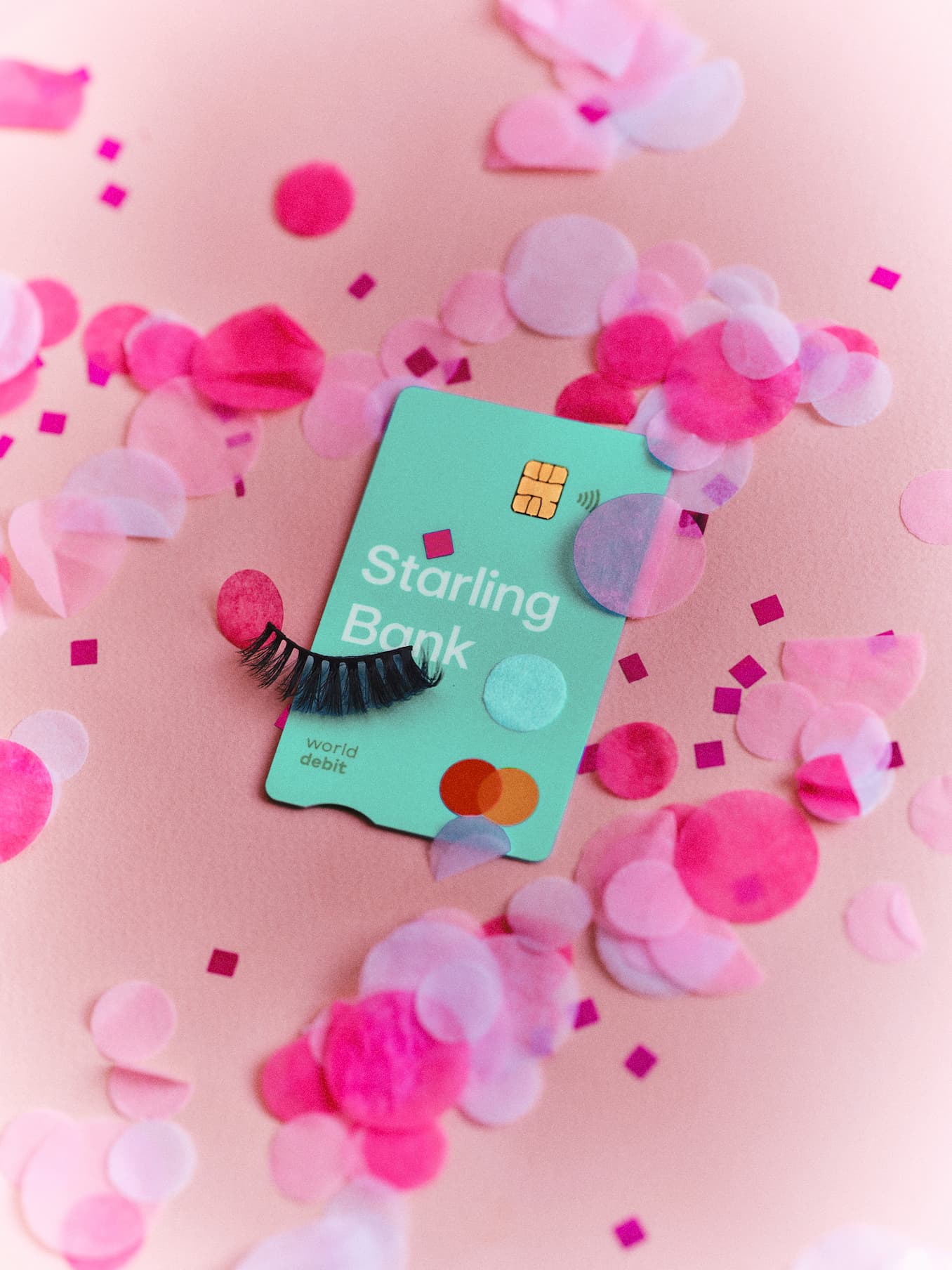
Salaries
‘Money dysmorphia’: what you earn vs how you feel
By Charlotte Lorimer
Social spending

Is it just me or has hen do spending kind of… taken over? Whether it’s trips abroad, themed events, or the inevitable personal grooming (and a new outfit), the price tag is pretty hefty. So hefty, that the gut response when seeing a friend’s “So we did a thing!” engagement announcement is more internal scream than sense of joy.
For a bride or groom to be, a hen or stag do is a rite of passage. But according to data from Experian, three in four hen or stag do attendees think that pre-wedding celebrations are too extravagant and cost too much. Last year, the average cost for a hen or stag do in the UK was £779 per person – and £1208 if it was taking place abroad, according to Aviva. In a cost of living crisis, there’s more pressure to watch what we’re spending, but it feels impossible to say no to an invite that’s laden with big-life-moment meaning.
Do other people feel incapable of saying no? Do hens spend more than stags? And what’s the solution? I decided to find out.
“The most I’ve ever spent on a hen do is around £1,000,” says Ashley*, 31. “It was in Mykonos, so that figure includes the flights, two nights in a villa, taxis around the island, and the bars and the restaurants, which were all very expensive.”
While she was a close friend of the bride, Ashley couldn’t help but feel resentful. “I went to school with the bride and I was a bridesmaid. But, even so, that is way too much to ask your friends to spend.”
After all, with the cost of living crisis, who has a spare £1,000 to spend on a holiday that’s not technically your choosing? Ashley also noticed the way hen dos and stag dos can incite shame for not being able to “keep up” with friends who are better-off financially.
“I have friends who’ve made up excuses to get out of a hen do, just because they couldn’t afford to and were too embarrassed to tell the bride that,” she says. “I don’t know when hen dos went from being a fun night out to being a mini break at a destination where you need to take days off work and spend a fortune.”


Tim*, 32, feels the same. “For my dad’s generation, a stag do was a night in a pub. I really begrudge how much that’s changed.” When it came to his own wedding, Tim opted out – “I didn’t have a stag do, I didn’t want one,” he says.
In the past, he’s spent between £600 and £800 on each stag do, which aligns with the national average. Tim has also realised that the location doesn’t make much difference: “Even when it’s in the UK, after the train and hotel, it works out about the same as going somewhere in Europe,” he says.
The biggest expense on many stag dos, in Tim’s experience, is usually alcohol related. “I went on a stag do in Portugal and I must have spent around €400 just on beer, food and buying rounds of drinks for the group,” he says.
That said, he did highlight a big positive within stag do culture. “When I went to my brother-in-law’s stag do, I was at university, while his friends were established in their careers,” says Derek. “They helped me out by chipping in a bit extra – they knew I was a student.”
Nowadays, he’s in a more financially secure position – and can help out friends who earn less. “You don’t necessarily have to ask everyone to chip in for everything at a stag do. If anyone is hesitant about paying a bill, or mentions money, chances are they’re quite strapped,” he says. “In those instances, people often offer to cover it on their behalf.”
Amari was just 23 when she went to her first hen do, celebrating her close friend from university. “She was the first friend to get married, so it was exciting for all of us in the friendship group,” she says. The hen do cost around £200.
“It wasn’t a lot, comparatively, but at the time I was broke, so it was a lot for me,” says Amari, 25. “Even so, I wanted to celebrate with her – she’s a close friend, it didn’t matter how much I spent.”
That said, Amari finds herself worrying about celebrations on the horizon, feeling that the novelty could quickly wear thin. “As I get older, I’m realising that I’m going to have to spend so much on my partnered friends – engagement parties, hen dos, weddings, baby showers.”
What Amari hopes for is a bit more awareness and honesty around the uneven spending between single folks and people in relationships. “The amount of money single people spend on their married friends and their kids is too much.”
While Amari is single for the time being, she isn’t sure whether she would have a hen do, if she were to get married, due to the expense for other people and herself.
Sidra, 34, who got married a few years ago, has a different perspective on pre-wedding celebrations. As an expression of her South Asian background, she decided to have a mehndi; a party before her wedding, named after the ceremonial henna applied to the skin.
While gifts and new outfits are a traditional part of the celebration, which can incur significant costs, in Sidra’s experience, guests are not expected to spend money on the activities for a mehndi. For her own mehndi, Sidra fronted most of the costs herself.
“A mehndi is an important event in an Asian wedding as it’s often the last party you have with your family before you get married,” she explains. “The most I’ve spent towards a mehndi is £3,000 and this was for my own. This amount included my outfit, decor, entertainment, hiring of tables and chairs and catering for 100 people. I decided to have a garden party mehndi, which was held in my parents’ garden, and my close family and friends were invited to celebrate.”
While the cost was significant, she doesn’t have any regrets. “For me, my mehndi was an important event, which I planned for a long time and had always looked forward to,” she says. “I would do it all again if I could – it was a very memorable time.”


When asked about the differences between the average hen do and the average stag do, 31-year-old Jenny noted the amount of ‘organised fun’ that often seems to come with hen do ideas. “Women seem to be expected to pay more up front on hen do activities – everything from kayaking to flower crown making – and there’s usually a hen do outfit theme too,” she says.
“From speaking to my male friends and my fiancé, it seems most of the money spent on stag dos is on alcohol – there’s a lot less organised fun.” This aligns with Tim’s experience, but he noted that stags are not free from pricey activities – go-karting, clay pigeon shooting or even zorb football could be on the agenda. Novelty outfits are also usually part of the fun.
So far, the most Jenny has spent on a hen do is £300 but she knows, in the future, she’ll probably be invited to more expensive ones. “I’m a Starling customer, and I use the Spaces function to spread the cost of Christmas and saving for holidays,” she says. “As the costs of hen dos ramp up, I’ll use that as it makes a huge difference.”


So, how to rewrite the narrative around stag and hen do spending? Firstly, transparency around finances can go a long way. If you feel you can’t afford someone’s celebration, thank them for the invitation and politely decline. That doesn’t make you a bad friend. In fact, you’d be part of a growing TikTok trend celebrating ‘loud budgeting’ – being open and honest about what you can afford and resisting the seemingly never-ending social pressure to spend.
Secondly, for those of us going through a stage in life where many friends or colleagues are tying the knot (hello, thirties!), it’s a good idea to spread the cost. Work out an annual budget for what you feel comfortable spending, then set some money aside each month to help make the cost more manageable. You can also use that overall spending cap to help you decide which events you can and can’t make.
Finally, if you’re the one organising a hen do or stag do, take people’s finances into consideration. Can you make certain activities optional? Can you do a night out instead of a trip away, or help someone out if they’re earning significantly less than everyone else?
After all, stag and hen dos shouldn’t be a stress, they should be a celebration. If that means allowing for some give-and-take to make sure everyone can get involved, sounds like a good foundation for a friendship.
*Name has been changed
Hen or stag coming up?
Plan ahead and set money aside with Spaces, a budgeting feature that can help you stay organised.
Learn more about Spaces
Salaries
By Charlotte Lorimer

Weddings
By Veena McCoole

How Much Does It Cost?
By Veena McCoole

How Much Does It Cost?
By Anonymous contributor